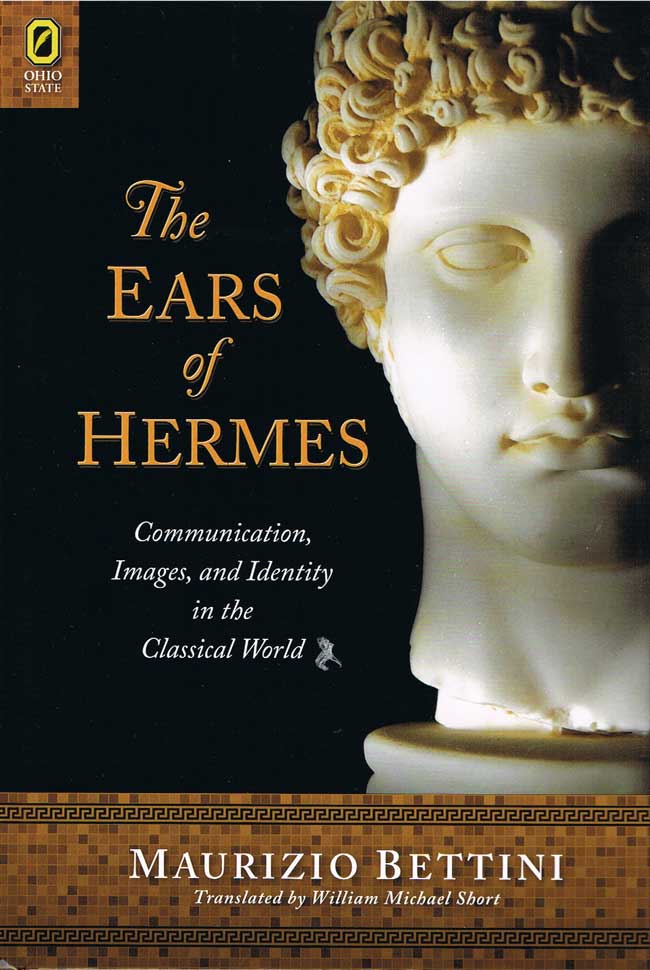The Ears of HermesCommunication, Images, and Identity in the Classical WorldMaurizio Bettini
|
 10/24/2011 Literary Criticism/Ancient & Classical 278pp. 6x9  $62.95 cloth 978-0-8142-1170-0 Add cloth to shopping cart $29.95 paper 978-0-8142-5615-2 Add paper to shopping cart $19.95 PDF ebook 978-0-8142-8019-5 Add PDF ebook to shopping cart Shopping Cart Instructions Review/Change Shopping Cart & Check-out | |||
| Table of Contents |
“Maurizio Bettini’s The Ears of Hermes is brilliant. This is a penetrating examination of a set of problems by the scholar who is arguably Italy’s all-around top classicist—certainly one of the most capable, engaging, and insightful classical scholars of our day.” —Roger Woodard, Andrew V. V. Raymond Professor of Classics, The University of Buffalo (The State University of New York) “The essays included in this volume have a lapidary brilliance that is characteristic of Bettini in general. Each one is grounded in exquisitely detailed knowledge of the Greek and (more often) the Latin sources. The themes he engages are huge: the nature of intelligence, the complexities of communication, the distinction between surface appearance and deep reality, and the way this produces both problems and opportunities, change of appearance and change in essential being, the relation between narrative and argument, audience and author. He engages such issues, however, by way of concrete materials that are chosen with consummate shrewdness and care.” —Bruce Lincoln, Caroline E. Haskell Professor of the History of Religions in the Divinity School of the University of Chicago Though in many respects similar to us moderns, the Greeks and Romans often conceived things differently than we do. The cultural inheritance we have received from them can therefore open our eyes to many “manners of life” we might otherwise overlook. The ancients told fascinating—but different—stories; they elaborated profound—but different—symbols. Above all, they confronted many of the problems we still face today—memory and forgetfulness; identity and its strategies; absolutist moralism and behavioral relativity—only in profoundly different ways, since their own cultural forms and resources were different. In The Ears of Hermes: Communication, Images, and Identity in the Classical World, renowned scholar and author Maurizio Bettini explores these different cultural experiences, choosing paths through this territory that are diverse and sometimes unexpected: a little-known variant of a myth or legend, such as that of Brutus pretending, like Hamlet, to be a Fool; a proverb, like lupus in fabula (the wolf in the tale), that expresses the sense of foreboding aroused by the sudden arrival of someone who was just the subject of conversation; or great works, like Plautus’ Amphitruo and Vergil’s Aeneid, where we encounter the mysteries of the Doppelgänger and of “doubles” fabricated to ease the pain of nostalgia. Or the etymology of a word—its own “story”—leads us down some unforeseen avenue of discovery. While scholarly in presentation, this book, in an elegant English translation by William Michael Short, will appeal not only to classicists but also students, as well as to anthropologists and historians of art and literature beyond classics.
| |||


 Maurizio Bettini
Maurizio Bettini